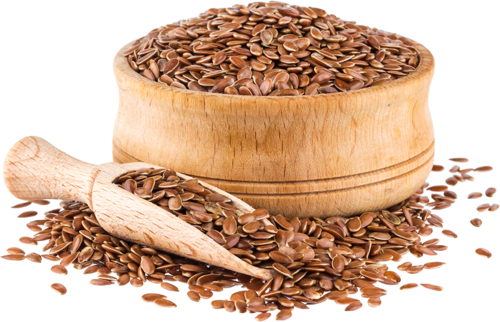Flax Seeds: The Ancient Superfood

Flax seeds are among the most popular and versatile add-ons to your food. However, this isn’t just a recent trend. Cultures have prized this for centuries for improving longevity and immunity. In fact, these crops are common across ancient Indian, European, and Latin American civilizations. Thus, it’s no surprise that it garners the status of a ‘superfood’ today, which can do wonders for your health. Here are just a couple of reasons to include it in your diet.
Nutrient Richness
Just one tablespoon (7 grams) packs in abundant nutrients for your bodily systems to function effectively. First, it contains macronutrients such as protein (1.3 grams), carbs (1.2 grams), fiber (1.9 grams), and fat (3 grams). Secondly, it carries micronutrients such as folate, calcium, iron, magnesium, phosphate, potassium, and vitamins B1 and B6. Optimal amounts of each of these can keep you disease-free.
Above all, this seed is rich in omega-3 fatty acids. It’s especially important to eat foods rich in this since your body doesn’t produce it naturally. Further, this is an essential fatty acid form in preventing cholesterol accumulation, inflammation, and tumor growth. This is essential to cardiac health. For instance, a Costa Rican study finds that those with higher alpha-linolenic acid (ALA) consumption had a lesser risk of a heart attack.
Finally, a review of over 27,000 studies with more than 250,000 people shows that ALA levels can lower the rate of heart disease by 14%. Similarly, it can lower your risk of getting strokes as well.
High Lignin Content
Lignin is a plant compound which is rich in antioxidants and oestrogen. Interestingly, flax seeds have 800 times more lignin in comparison with other plant foods. As a result, it can lower the risk of breast cancer, among menopausal women in particular. In fact, a Canadian study of more than 6,000 women shows that it can lower this risk by 18%. That’s not all though – men can benefit from high lignin levels too. For instance, a study of 15 men shows that those eating flax seeds on a low-fat diet had lower risk of prostate cancer. Furthermore, many animal studies show that it can lower risks of colon and skin cancers.
Overall, high lignin levels can combat cancer cell and tumour growth. However, more research can help to confirm these findings.
Dietary Fiber Content
Among other nutrients and food groups, one tablespoon of flax seeds packs in 3 grams of fibre – hence covering 8-12% of your daily needs. Once you eat flax seeds, the fibre goes through fermentation in the bowels with the helps of bacteria. Thus, it adds bulk to your stools and ensures healthy bowel movements.
This fibre consists of can be soluble (20-40%) or insoluble (60-80%). First, soluble fibre can increase bowel consistency of your intestines and hence lower digestion rate. In this manner, it can regulate blood sugars and lower cholesterol levels. Secondly, the insoluble form can help water bind to your stools. Hence it increases stool bulk and softness. This can especially help to prevent constipation among those with irritable bowel syndrome (IBS), or similar issues.
Lowers Cholesterol Levels
With an abundance of fat-rich foods easily available today, it’s not surprising that you can find a number of people complaining of high cholesterol. Luckily, many studies show that flax seeds can help combat this. For instance, one study shows that 3 tablespoons of flaxseed powder (30 grams) can bring down ‘bad’ LDL cholesterol by 20%, and overall levels by 17%. Secondly, a study among diabetic patients finds that having just 1 tablespoon of the powder (10 grams) everyday for one month can improve ‘good’ HDL cholesterol levels by 15%. Further, these findings were identical in postmenopausal women, for whom 3 tablespoons lowers total and LDL cholesterol levels by 7% and 10% respectively.
Once again, these effects are due to the fibre-rich nature of flaxseeds. Once it binds to bile salts, it undergoes elimination by the body. After that, cholesterol from your blood moves to the liver to replenish bile salts. As a result, it improves heart health as well.
Lowers Blood Pressure
Today’s urban ways of living have taken a toll on our minds and bodies. In other words, we’ve reached a state where of constant stress. Apart from fatigue, irritation, and body aches and pains, high blood pressure is a common symptom of stress. Flax seeds can help you bring this down. For instance, a Canadian study shows that having 30 grams of flaxseeds everyday for half a year can lower systolic blood pressure (by 10 mmHg) and diastolic blood pressure too (by 7 mmHg).
Furthermore, a larger review of 11 studies shows that eating flax seeds everyday for more than 3 months can lower blood pressure levels by 2mmHg. This can lower the risk of stroke death by 10% and heart disease by 7%.
Packs in High-Quality Proteins
Flax seeds are rich in plant-based proteins such as arginine and glutamic acid. Various plant and animal studies show that this can improve immune function, lower cholesterol. and prevent tumours. It has anti fungal properties as well. Hence, this is a fantastic solution if you’re cutting back on meat consumption and facing hunger pangs. It’s not just us saying this – a PubMed study among 21 adults compares animal and plant protein meals. They find no difference in appetite, satiety, or food intake of either subject group. This is probably because flaxseeds stimulate gut hormones which promote fullness. Hence, this can control hinger cravings.
Blood Sugar Control
High blood sugar and diabetes are leading health challenges worldwide. These are a result of high blood sugar levels, either due to insulin resistance or the body’s inability to secrete this. In response, flaxseeds can help to stabilise this. For instance, one study finds that those with type 2 diabetes who add 10-20 grams of flaxseed powder to their daily diet for one month saw an 8-20% drop in blood sugar levels. This is namely due to the presence of insoluble fibres, which slows down sugar release into the bloodstream.
In contrast, another study finds no change in blood sugar levels or diabetes management. This may be because the study uses flaxseed oil – this lacks fibre which plays a key role in lowering blood sugar levels. Thus, make sure to add whole flax seeds to your diet if you wish to control blood sugar levels.
Takeaways
Flax seeds are full of nutrients and pack in a healthy crunch to your meals. They can ward away cancer, lower cholesterol, promote bowel health, lower blood pressure, and blood sugars and keep you satiated. Furthermore, this is a versatile seed you can use in a variety of ways – such as a topping to oats, breakfast cereals, or salads, as a thickener to smoothies, or as a delicious add-on to cakes, breads, or cookies. Alternatively, you can use flaxseed oil as a salad topping or while cooking. Most importantly, make sure to consume this as a part of a healthy balanced diet for best benefits.
Check out some benefits of black cumin seeds here.
Click here to join us at Mekosha for an Ayurvedic retreat in Kerala.








